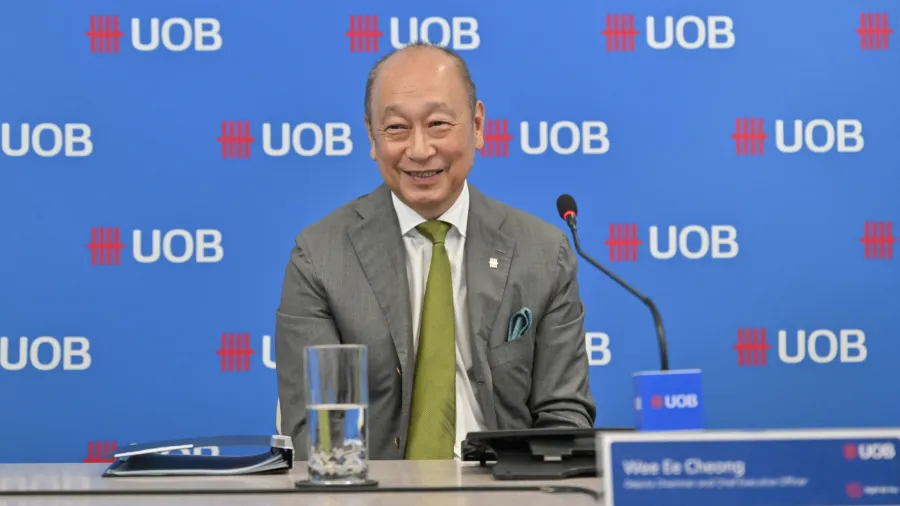
UOB’s net profit stable at S$2.91b in H1; interim dividend is 88 cents
Income growth and lower allowances were offset by one-off integration costs.
UOB Group reported a net profit of S$2.91b in the first six months of 2024, nearly unchanged from the S$2.92b it earned in the same period last year.
The Singaporean banking giant had a net profit of S$1.425b in Q2, 4% lower than the S$1.487b it earned in Q1, its latest financial statement showed. Compared to Q2 2023, net profit for the April-June period was 1% higher.
An interim dividend of 88 Singapore cents per ordinary share has been declared, representing a payout ratio of 51%.
In a press release, UOB attributed the stable profits to double-digit income growth and lower credit allowances. This was offset by one-off Citigroup integration expenses.
UOB has already successfully integrated operations of Citi’s Malaysia, Indonesia, and Thailand businesses to its local operations, said UOB CEO and deputy chairman Wee Ee Cheong.
“[The] one-time costs will be reduced substantially as we move towards integration in Vietnam next year. We will focus on extracting both revenue and cost synergies from this portfolio as we deepen our customer relationship and provide our customers with a more comprehensive suite of solutions, including wealth management,” Cheong said in a statement on the bank’s latest financial results.
Net interest income dipped 1% year-on-year (YoY) in Q2 from lower net interest margin (NIM), but is 2% higher than in Q1 due to loan growth.
Net fee income for Q2 is 18% YoY higher to a near-historical high of $618m, which UOB attributed to loan-related and wealth management fees, and double-digit growth in credit card fees.
UOB Group’s wholesale banking trade and loan-related fees grew 19% YoY in Q1.
New assets under management (AUM) from affluent customers were S$182b– 10% higher compared to new AUM recorded for Q2 2023.
Retail wealth management income grew 40% YoY in Q2 on the back of improved sales in structured notes, bonds, and unit trusts, as well as growth of UOB’s bancassurance.
Card fee income was boosted by continued consumer confidence and spending, UOB said.
Other non-interest income declined 21%, higher, due to lower swap gains and valuation of investments.
Non-performing loan ratio is 1.5% as of 30 June.
Looking forward, Cheong expects ASEAN to stay “relatively resilient.”
“We are optimistic about the region’s long-term potential, backed by robust fundamentals and foreign direct investments inflows as companies diversify their supply chains,” Cheong said.
He noted that global growth continues to be weighted by geopolitical tensions and higher interest rates.
“Despite uncertainties in the horizon, we are confident in our ability to navigate the environment with our disciplined approach,” Cheong said.

















 Advertise
Advertise










